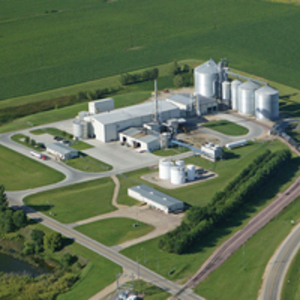Gevo provides update on Luverne, Minnesota, plant

Gevo Inc.
September 19, 2014
BY Gevo Inc.
Gevo reported an update on the progress of the side-by-side operational mode (SBS) of its plant in Luverne, Minnesota, on Sept. 18. In the beginning of June, Gevo commenced the coproduction of isobutanol and ethanol, with one fermenter dedicated to isobutanol production and three fermenters dedicated to ethanol production. With the completion of the last phase of capital for SBS, Gevo has begun to produce and ship isobutanol in railcar volumes.
In its 2nd quarter earnings release, Gevo reported that it would be installing distillation equipment at the plant, representing the final phase of capital for the SBS. This equipment facilitates the extraction of isobutanol from the plant, which should enable Gevo to boost production levels of isobutanol by debottlenecking the downstream side of the plant. This distillation equipment was commissioned in early September and is already showing improved results at the plant, such
as:
-A doubling of isobutanol batch sizes.
Advertisement
Advertisement
-A 50% reduction in isobutanol batch turnaround times.
-Consistent yields of 90 percent based on starch content.
-A continued decrease in isobutanol production costs towards targeted economic rates.
Advertisement
Advertisement
"We are on track with the SBS. We completed the installation of our isobutanol distillation column and it operates well. We are continuing to boost isobutanol production levels while simultaneously driving cost out of our production processes. We are pleased to be shipping both ethanol and isobutanol in railcar quantities. This isobutanol is destined for the solvents and specialty gasoline blendstock markets, as well as to supply our demo plant in Silsbee, TX, to convert our isobutanol into hydrocarbons such as bio-jet fuel and isooctane," said Dr. Patrick Gruber, Gevo CEO.
"By installing the last phase of capital at Luverne, we remain confident that we will be able to achieve production levels of 50-100 thousand gallons of isobutanol per month by the end of 2014. As we continue to learn and optimize the isobutanol production process, we believe we can ultimately increase our production rate to approximately
2-3 million gallons of isobutanol per annum under the SBS, while we are producing ethanol in the other three fermenters," continued Gruber.
Related Stories
Calumet Inc. on Aug. 8 confirmed its Montana Renewables biorefinery is currently running at full capacity. An initial phase of the company’s MaxSAF initiative remains on track to boost SAF capacity to up to 150 MMgy by mid-2026.
Marathon Petroleum Corp. on Aug. 5 released second quarter financial results, reporting improved EBITDA for its renewable diesel segment. The company primarily attributed the improvement to increased utilization and higher margins.
Chevron Corp. on Aug. 1 confirmed the company started production at the Geismar renewable diesel plant in Louisiana during the second quarter after completing work to expand plant capacity from 7,000 to 22,000 barrels per day.
In celebration of World Biodiesel Day, MOL Group on Aug. 8 announced SAF was successfully produced for the first time at INA’s Rijeka Refinery during a pilot project to process biocomponent. Renewable diesel was also produced.
The U.S. exported 35,953.6 metric tons biodiesel and biodiesel blends of B30 or greater, according to data released by the USDA Foreign Agricultural Service on Aug. 5. Biodiesel imports were at 2,148.9 metric tons for the month.
Upcoming Events










